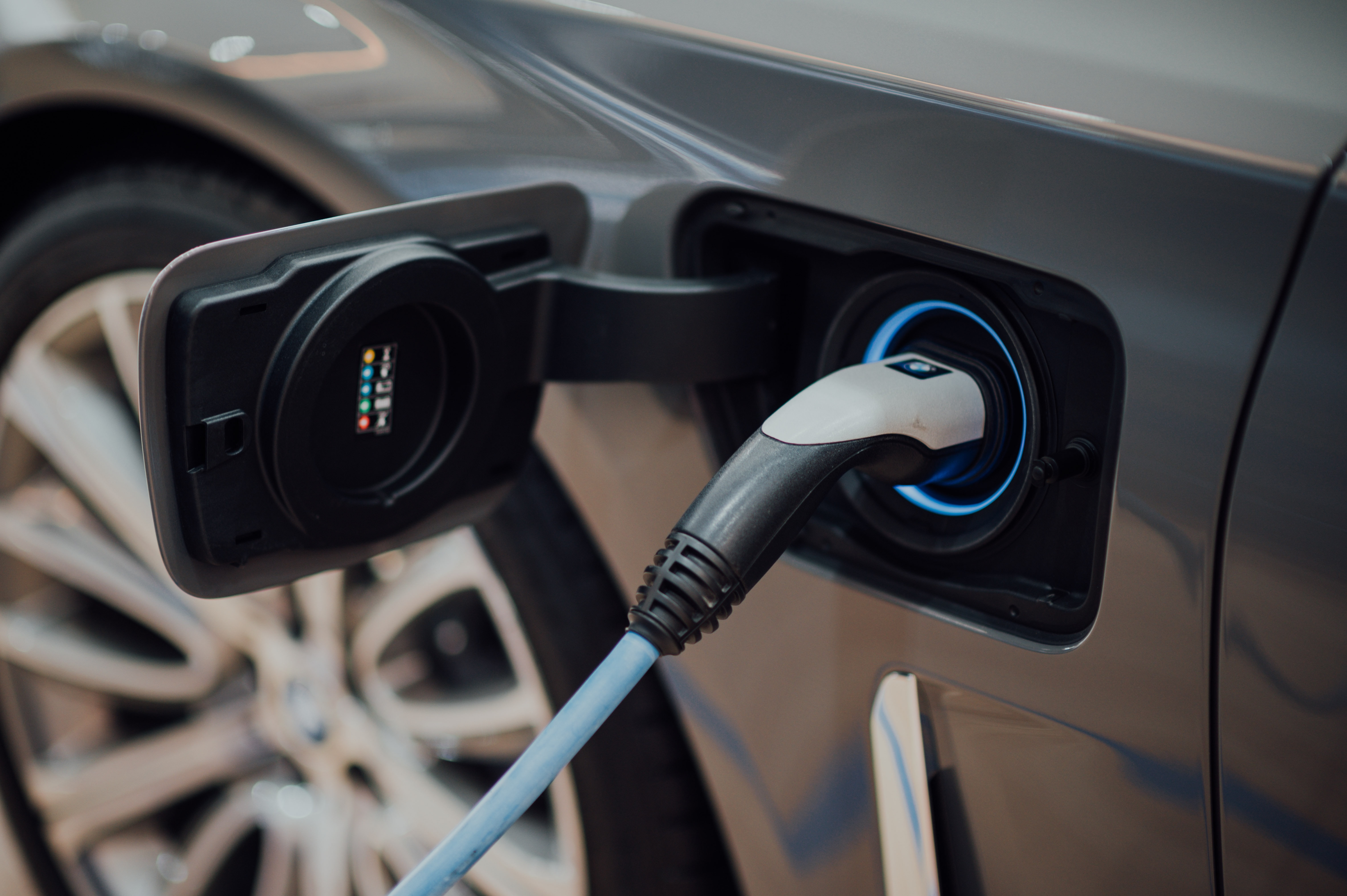Could going electric save businesses money? Mark Barclay, from GSF Car Parts, shares just some of the benefits of switching to an electric fleet of vehicles.
Even just a few years ago, it would have been unthinkable to most people in the transport industry that fully electric vehicles (or EVs) would be a viable option for fleet, pool or company cars. For a long time, there was something of a stigma attached to EVs: many people saw them as unreliable, low-mileage consumer cars that weren't fit for the needs of a business. But, in the past few years, we've seen major developments in terms of performance. In fact, many modern top-spec EVs now have a standard mileage of almost 300 miles per charging cycle (EDF Energy), meaning that they're very well equipped to meet the needs of most business driving.
The electric vehicle market is booming — and with good reason. Registrations for pure-EVs in the first six months of 2020 are up 86% compared to 2019 (NextGreenCar), showing that the tide is certainly turning. These vehicles can bring all sorts of benefits, from savings on fuel and maintenance, to lower emissions. As such, more and more companies may start swapping their traditional fuel and diesel vehicles for electric fleets in the next few years. Here are some of the most compelling reasons for doing just that.
The benefits of switching to electric vehicles:
- Fuel costs
- Environmental impacts
- Tax benefits
- Easier maintenance
It can significantly cut fuel costs
For many business owners, one of the most appealing things about switching to EVs is the potential to save money on fuel. On a cost-per-mile basis, a pure-electric vehicle could cost a quarter or less than a traditional petrol or diesel car would, according to Go Ultra Low. When you multiply this across an entire fleet, it's clear that these savings soon start to add up.
While the potential savings on fuel are a very appealing prospect, many business owners are still hesitant to make the switch because they fear that charging EVs will be inconvenient, or that downtime during charging may eat into profits. However, this is gradually becoming less of an issue as EV charging points become more commonplace. Charging times are also shrinking as the cars themselves become more advanced, and many models now have a rapid-charging function that allows the driver to restore up to 80% of the charge in under 45 minutes, meaning drivers can top up their cars when they stop for a break.
It makes a real difference to environment
Fully electric cars produce zero tailpipe emissions, making them greener, cleaner and all-round better for the environment than their petrol or diesel counterparts. Switching away from fossil fuels can help to combat climate change at a global level by reducing greenhouse gases. And, because the fleet won't be releasing CO2 and pollutants, it can also help to improve the air quality in the surrounding area, too.
Beyond corporate responsibility to the environment, going green can have other benefits for transport companies, too. Modern consumers are increasingly conscious of their impact on the environment, and so are more likely to favour those businesses that can prove they're doing their part to reduce CO2 emissions. So, having a fleet of EVs could just help businesses win over eco-aware clients, too.
Business owners can take advantage of tax benefits
The government is keen to incentivise both members of the public and business owners to make the switch to EVs. As a result, there are a number of tax breaks and grants that companies can take advantage of to help make the switch as cost-effective and straightforward as possible.
EVs are currently exempt from Vehicle Excise Duty and first-year road tax, and the government will also provide a grant of up to £350 to go towards the cost of installing an electric charging point, which helps reduce the cost of buying a new pure-electric vehicle. And, as of April 2020, BIK rates for company car drivers and fleet operators stand at 0%, and businesses can also take advantage of reduced class 1a National Insurance contributions. Cars with CO2 emissions of less than 50g/km are also eligible for 100% first year capital allowances, allowing business owners to deduct the full cost from pre-tax profits for that year.
But that's not all. EVs are also exempt from congestion charges, so any companies which operate fleets in London or other city centres could make serious savings. All in all, they're an all-round more tax-efficient option when compared to their fuel and diesel counterparts.
EVs are easier and cheaper to maintain
Fully electric models have fewer components than standard diesel of petrol vehicles. Instead of a traditional combustion engine, they work using a simplified electrical system, which consists of an on-board charger, inverter, and motor. This means that there are fewer points of failure in an EV, which helps to keep the total overall cost of owning one down. It also means that servicing and maintenance of a modern EV tend to be much simpler and more cost-effective than with a gas-guzzling vehicle. Given that any downtime for maintenance has a direct impact on a company's bottom line, this can only be a good thing for business owners.
Upgrading from fuel or diesel to an electric fleet is much better for environment, but in many respects, it also makes sound business sense, too. So, this may just be the next step forward for mobile and transport companies across the UK.
Thought about getting a vehicle management system? Get started today.
.png?width=1161&height=159&name=Asolvi-hex-logos-2023-baseline-final-BA_MyMobileWorkers%20(1).png)
